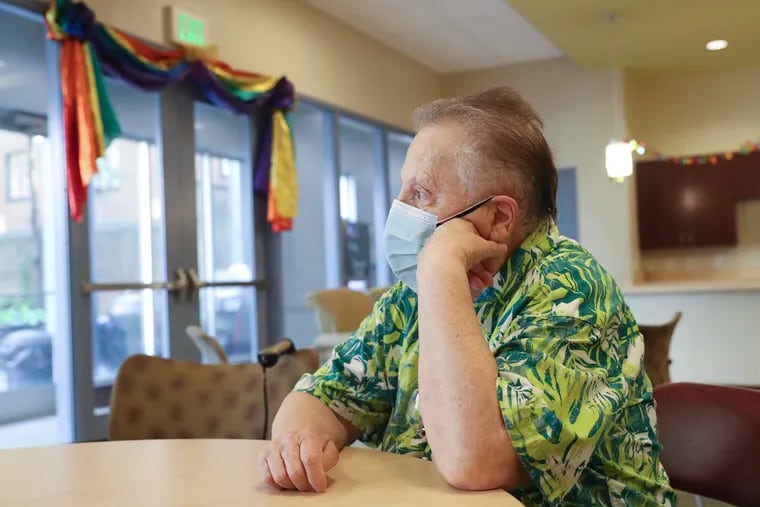Pennsylvania has a relatively high number of LGBTQ adults — 5.8% of the adult population in the state, vs. the national average of 5.5%. As home to more than three million older people, we also have one of the oldest populations in the nation. As part of this population, LGBTQ elders have specific needs that are often not met.
Research shows that as LGBTQ people age, they experience higher rates of social isolation, and have less robust support networks than non-LGBTQ older people. There are likely many reasons for this, but they include the fact that the community is less likely to have children, more likely to live alone, and are often estranged from their families of origin, who typically provide most informal caregiving for aging relatives.
What’s more, most older members of the LGBTQ community also experienced a lifetime of discrimination and stigma while having to conceal their identities. Many have also been discriminated against by employers over the course of their careers, so they have greater financial instability and higher poverty rates.
And the lifetime of discrimination didn’t stop at their careers. LGBTQ elders have also faced discrimination from doctors and other health providers, which discouraged many from seeking care, or prompted them to withhold information from doctors about their identities. As a result, the population has higher rates of disability, mental health challenges, and chronic health problems.
Among the people hit hardest in the LGBTQ community are older people living with HIV.
As a public health practitioner for the past 35 years, I have worked extensively with LGBTQ elder communities and older people living with HIV. Many people living with HIV in the U.S. are over 50 years of age with shrinking networks, due to the devastating losses experienced during the AIDS epidemic. In addition, many aging service providers still carry the myths and stigma about HIV.
Many aging service providers still carry the myths and stigma about HIV.
As more LGBTQ individuals age in our area, there is a deep need for our state budget to adequately fund aging services that meet the needs of this population, provide the resources to allow them to age in place, and ensure access to the quality of life they deserve. Not only would this directly support the needs of community members, but it would align with federal guidelines based on recent updates to the Older Americans Act, which require all states to include LGBTQ-specific considerations in their aging plans and elder care efforts.
A recent draft plan released by the Pennsylvania Department of Aging for how to meet the needs of older Pennsylvanians over the next four years included LGBTQ people in its definition of greatest social need — though itleft out people living with HIV — and moved toward a plan for protecting LGBTQ people in long-term care facilities across the state. It must do more.
» READ MORE: This Philly icon was at Stonewall. Now he’s part of its new memorial. | Jenice Armstrong
Younger members of the LGBTQ community owe so many of their rights to the trailblazers who came before them. They and their allies can support these trailblazers by calling the Department of Aging and demanding the plan includes the needs of LGBTQ elders and people living with HIV and outlines further plans to reach them.
Other specific calls to action include:
Long-term care facilities should train staff on the unique strengths, stressors, and legal challenges in the lives of LGBTQ older people. One way this can be accomplished is to maintain a credential through SAGECare, which shows the staff have been trained in LGBTQ cultural competency.
Support the passage of the PA Fairness Act. Pennsylvania currently has a patchwork of legal protections for LGBTQ residents, rather than a uniform antidiscrimination law. So even though a Pennsylvanian worker can’t be fired for being gay, they can be denied other services because of their sexuality, including housing and education. Pennsylvania is the only state in the Northeast without a comprehensive antidiscrimination law protecting the LGBTQ community. The Fairness Act needs to be passed to provide protection across the commonwealth, and the Department of Aging can serve as a valuable advocate in this work.
The state should also continue to collect and evaluate data from older adults about their sexual orientation and gender identity, which will inform programs and services, and thus enable providers to continue to offer high-quality, person-centered care to LGBTQ individuals.
Let’s pave the way for a better future, so everyone ages with respect and dignity. No elder — regardless of who they are and who they love — should be left behind.
Terri Clark is a public health advocate and facilitator who has worked with aging services across the state. She is a member of the aging workshop of Gov. Josh Shapiro’s LGBTQ commission.







